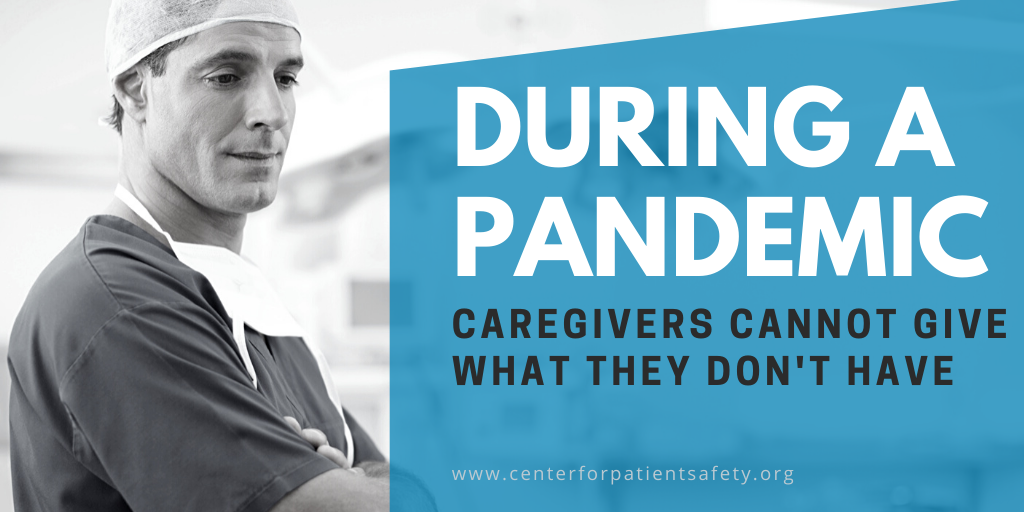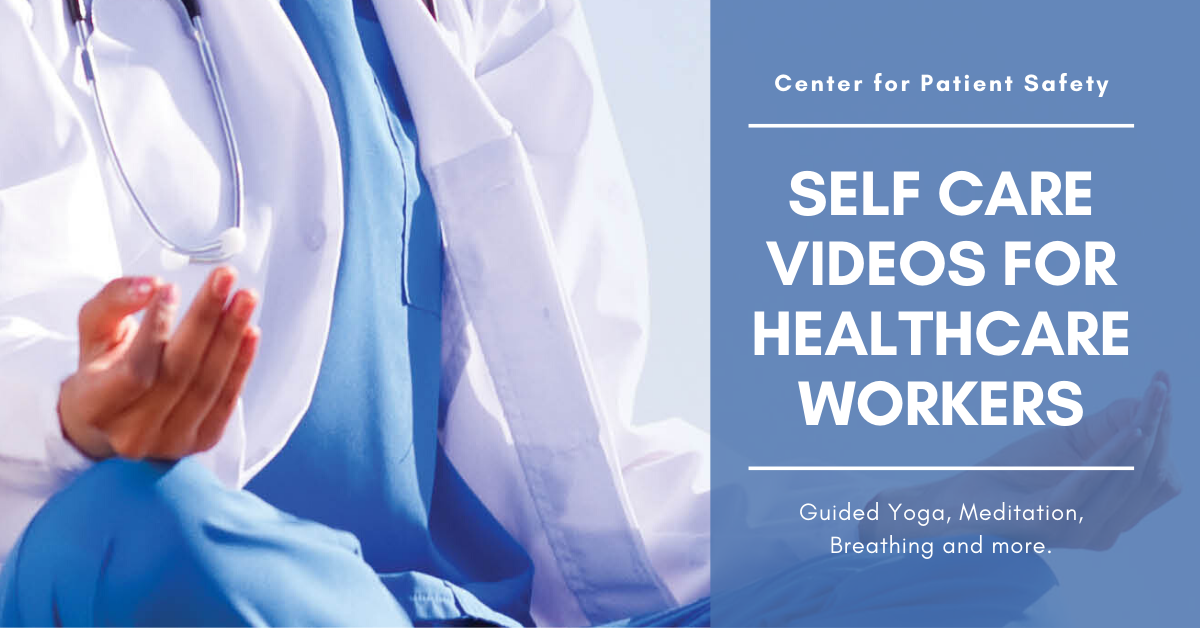During a Pandemic: Caregivers cannot give what they don't have

As busy, caring people, it’s easy for healthcare providers to feel stressed out, exhausted, and maybe even burned out under normal circumstances. The challenges of COVID-19 magnify that risk. We often put everyone and everything in our life - family, job, household, and community - ahead of our own needs and desires. As healthcare professionals, we face a double-whammy since the nature of our work is caring for others.
This first wave of the COVID-19 pandemic is taxing some facilities and providers to their limits. Those caring for patients, or supporting those who do, are not free of the strain. The bottom line is that you cannot give what you don’t have. If you feel depleted, exhausted, and stressed, there is no way you can enjoy life, much less care for patients with inspiration, high energy, and joy.
The secret to a healthy, happy work and home life must come from inside, by making self-care a priority. While the pandemic creates tremendous challenges for self-care efforts, our own cup must be full (or as full as we can make it) to be the caregiver, employee, co-worker, partner, parent or friend you want to be.
The concept of regular self-care may feel completely impossible. Our culture emphasizes the value of service to others without much regard for our own self-care. Self-care is often perceived as selfish. However, if we keep waiting for leaders, organizations, loved ones, or friends to create less stress in our lives, to give us permission to put our needs first, or for “things to slow down,” we might be waiting forever. While waiting, we run the risk of remaining in an unsustainable state of stress…leading to disease, unhappiness, and danger for our patients.
As with most things in life, prioritizing self-care starts with us. You are the only one that can shift how you are experiencing your work, your life, and the level of stress that you are experiencing. As we come off of the first wave of the pandemic, this is a good time for healthcare providers to reflect on whether they can or should do more for themselves. The stories coming from the front line prove that healthcare providers can sacrifice themselves. With more time, we should reflect on how we can take care of ourselves.
This blog provides some basics to start making self-care and the preservation of your own well-being a priority. Self-care can include many things and is very individual. For all, it should feel good! It is nourishing, renewing and replenishing. Here is a list of simple self-care activities you can begin to incorporate into your daily life:
- Deep, calming belly breathing. It seems so simple, but it has a huge impact on our stress level. Belly breathing lowers our stress response and calms our very busy minds. Here’s how to do it. Sit upright, place your hand on your lower belly. Take a deep breath in through your nose and fill your lower belly (your hand should move). On exhale, allow the belly to fall toward the spine. Repeat!
 Stillness, prayer, or meditation. This practice allows a reset and allows quiet time—even for a minute—for us to connect with our inner self and not be so focused on our busy mind and the external world. CPS has daily self-improvement exercises to guide providers in any environment, from novice to expert.
Stillness, prayer, or meditation. This practice allows a reset and allows quiet time—even for a minute—for us to connect with our inner self and not be so focused on our busy mind and the external world. CPS has daily self-improvement exercises to guide providers in any environment, from novice to expert.- Engage in activities that fill you up. The list of options is endless. Make this about YOU and about feeling renewed and nourished. Some options to consider: hot bath, time in nature, reading, using essential oils, hobbies, listening to music, mindful movement (yoga, tai chi, walking, etc).
- Adequate sleep/rest. Sleep/Rest is the time the body repairs and renews at a cellular level. Consistent sleep loss can lead to many chronic health conditions, as well as just making us more irritable and less clear thinking. Rest includes taking your breaks at work!
- Eat whole foods. Your cells need nutrients to function properly. Begin to add more vegetables, fruits, high-quality proteins, grains, and fats to optimally support your body in its daily functions.
- Fun and joy. Let’s be honest--ultimately, we want to have fun and be happy in life. Find ways you can experience joy and fun every single day!
- You may be wondering, HOW do I really do this? Here are some tips to help you begin to put self-care at the top of your priorities.
- Start small. Pick 1-2 daily self-care practices you can fit into your day. Next, identify 1-2 additional self-care activities that you can engage in weekly or monthly (these may take more time or financial investment like massages, long bike rides or hikes, etc.).
- Set your intention. Your thoughts are powerful, so choose them and your intentions consciously. Intend to have enough time for self-care, intend to have a great shift, intend to be present with your patients. Get picky about the thoughts you allow to live in your head. Decide how you want to experience life and start creating it--one thought at a time.
- Get support. Keeping your new commitment to self-care will likely require cooperation (not permission!) from those around you. Make a list of people you need to support your commitment to your self-care. Be specific by asking for exactly what you need. For example, ask your co-worker: “Can you cover my patient for a few minutes while I take my break?” Plan with your spouse: “How can we work together, so I have time to take my walk each day?” Make a list of what you need to put in place to support you in daily self-care. Think about systems, prompts, or other tools you would like to keep your patients safe at work. We create and use systems in our professional lives to improve efficiency, consistency, and safety, so use these same concepts to identify how to make your self-care failsafe.
- Be consistent. Consistency creates long-term benefits to your health, your emotions, and your well-being. The more consistent you are, the easier it will be for your self-care to become routine versus and “add on” activity.
- Allow love and compassion for you. This is the most essential practice! As caregivers, we are quick to feel compassion for others, yet often become very hard on ourselves. Can you begin to bring more compassion and love to yourself? Be gentle with yourself and with others.
To learn more, CPS has created several videos on meditation, breath work and yoga to help you get started.
.png)
